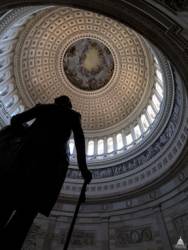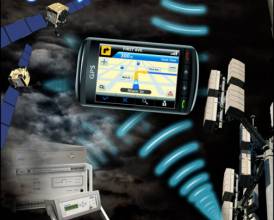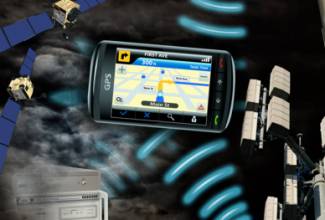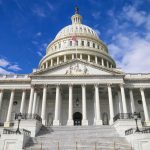
Republican leaders of the U.S. House of Representative’s Energy and Commerce Committee have requested additional information regarding the procedures followed by federal agencies in the interference dispute between LightSquared and GPS.
The inquiry also asks about the government plans to develop GPS receiver standards that would prevent interference from “future deployment of terrestrial service in spectrum near or adjacent to the GPS bands.”
Republican leaders of the U.S. House of Representative’s Energy and Commerce Committee have requested additional information regarding the procedures followed by federal agencies in the interference dispute between LightSquared and GPS.
The inquiry also asks about the government plans to develop GPS receiver standards that would prevent interference from “future deployment of terrestrial service in spectrum near or adjacent to the GPS bands.”
On February 28, committee chairman Fred Upton (R-MI), Communications and Technology Subcommittee Chairman Greg Walden (R-OR), and Oversight and Investigations Subcommittee Chairman Cliff Stearns (R-FL) sent nearly identical letters to the heads of the Federal Communications Commission (FCC) and the National Telecommunications and Information Administration (NTIA), as well as the co-chairs of the National Space-Based Positioning, Navigation, and Timing Executive Committee (PNT ExCom).
The letters asked for copies of “all written and electronic communications” from April 2009 to the present between the governmental bodies and any individual associated with LightSquared, Harbinger Capital Partners (LightSquared’s primary financial backer), SkyTerra Communications (the former company from which LightSquared acquired licenses to spectrum near GNSS L1 services), and GPS manufacturers. Garmin, Trimble, and John Deere — three of the most active GNSS companies involved in the debate — were singled out in the request.
A statement by the committee leaders said the letters were sent as part of an effort to sort out the actions taken by federal agencies in approving LightSquared’s terrestrial network “without better addressing potentially serious interference concerns.”
The terms of the letter appear to be zeroing in on following:
· the April 2009 applications filed by SkyTerra and LightSquared to transfer the former’s L-band spectrum licenses for mobile satellite service (MSS) for use in a terrestrial network
· the March 10, 2010, approval of the transfer by the FCCs International and wireless telecom bureaus, conditioned on “an aggressive build-out schedule and a restriction on providing service to the nation’s two largest wireless providers [AT&T and Verizon]
· All documents and details of “tests conducted by any party” analyzing potential interference with GPS devices that may have taken place before the January 26, 2011, conditional waiver order allowing implementation of the all-terrestrial wireless broadband network.
The nature of the request reflects widely held suspicion that, before the FCC acted, little if any testing was conducted to determine the potential for interference to GNSS receivers from the high-powered all-terrestrial network sought by LightSquared.
As the House group with jurisdiction over federal communications policy, the Energy and Commerce Committee has been monitoring the progress of the proposed deployment of the broadband network.
However, with the recent tentative decision to limit LightSquared’s license to satellite-based service, “many unanswered questions” remain, the committee said in the press statement, particularly whether the processes used to evaluate the proposed spectrum license transfer, testing, and potential interference from LightSquared’s planned terrestrial network were appropriate.
With presidential and congressional elections being held this year, the LightSquared/GPS issue has taken on partisan overtones. Republicans are pointing to large financial contributions to the president’s re-election campaign and the coffers of other Democrats by principals at Harbinger and LightSquared as signs that the FCC process was manipulated to expedite the wireless broadband proposal.
Election Year Ambience
Given that partisan environment, the prospects seem uncertain for a quick response to questions from the Republican-controlled House by elements of a Democratic-controlled executive branch. House committees do have the power to subpoena federal officials to appear before them, but the process could be a difficult and prolonged one.
The letters asked the agencies to provide written answers to similar but separate sets of questions by March 13 regarding tests conducted by the three government groups or independent organizations, before January 26, 2011, and between that date and February 14, 2012, when the NTIA and then the FCC announced that harmful interference to GPS devices would probably occur — which led, in turn, to the FCC’s decision to suspend the LightSquared network’s rollout.
The questions sought explanations of the standards used to determine whether harmful interference to GPS devices would occur, how the equipment to be tested was chosen, and whether interested parties were able to monitor the testing. They also asked about NTIA’s oversight of the Technical Working Group set up last year by LightSquared in cooperation with the GPS Industry Council to analyze potential GPS interference as part of the FCC’s conditional waiver order as well as the PNT ExCom role in the testing and analysis.
In the letter to FCC Chairman Julius Genechowski, the committee leaders ask why the FCC provided limited time for public comment on key elements of the LightSquared plan, why the agency waived the integrated-service rule that required a satellite component to the broadband service, and why the full commission did not vote on the issue but left it to decisions by FCC bureaus.
Copies of the letters on the GPS/LightSquared issue may be downloaded
from the energy committee website here.
Implications for GPS Receiver Design, Standards
The issues underlying the dispute also have broader implications for spectrum management generally, the statement said. Committee leaders are seeking information on any work that the PNT ExCom and NTIA have done or are planning “to ensure that GPS devices procured and used by federal agencies are appropriately constructed so that future deployment of terrestrial service in spectrum near or adjacent to the GPS bands will not impact GPS service.”
The FCC Office of Engineering and Technology, Wireless Telecommunications Bureau, and Office of Strategic Planning recently announced a March 12–13 workshop on “Spectrum Efficiency and Receiver Performance.”
The workshop announcement does not single out GPS receivers, but it does mention the effect of ancillary terrestrial service on mobile satellite spectrum and GPS as an example of past “interference issues.”
The workshop at FCC headquarters will discuss the characteristics of receivers and how their performance can affect the efficient use of spectrum and opportunities for the creation of new services. Key topics will include current practices for receiver design, case studies involving interference due to receiver characteristics, and approaches for promoting interference avoidance and efficient use of spectrum, given the current receiver base and potential future deployments.
The workshop will include perspectives from licensees, equipment manufacturers, component providers, and other interested parties. The public notice for the workshop can be found on the FCC website here.





